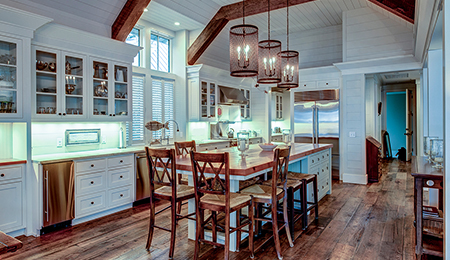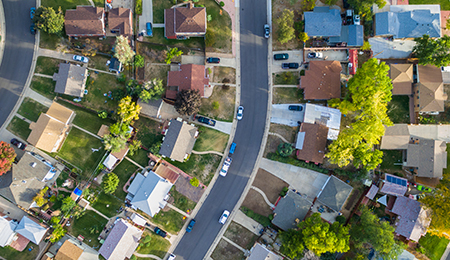Why our housing market is slowing and how it affects your home.
Is the real estate market slowing? You may hear about this on the news or from your friends, and many of my clients have asked me this question. With the recent interest rate hikes, everyone wants to know if the market is slowing. In short, yes. The market is slowing, but not as much as you think.
We’ve seen a dramatic change in our market recently. Inventory increased significantly in April, according to both Zillow and Realtor.com. The chief economist at Realtor.com notes, “If the trends we’re seeing now hold true, we could potentially see year-over-year inventory growth within the next few weeks.” At the same time, buyer demand also decreased. The number of new mortgage applications fell in April for the third month in a row, and existing home sales dropped 2.4%.
Without a doubt, the market is starting to shift from the hot, pandemic-fueled one we had for the last few years to one that favors buyers slightly more, and there are a few main reasons why we’re seeing this change. First, as you may already know, the Federal Reserve has started fighting inflation by raising rates. Mortgage rates have risen around 2% to 3% since the start of the year and may continue to climb. That has a direct effect on buyers by making it more difficult to afford a home. As a result, demand has fallen.
“The market might be slowing, but it’s still a good time to sell your home.”
On top of rising rates, we’re also seeing a surge in newly-built homes and altered zoning laws aimed at increasing the housing supply. As the Biden administration notes, more homes will be built this year than any since 2006.
So the market is slowing down, and the primary cause is increased interest rates. How does all of this affect your home? The drop in buyer demand has already led to immediate changes like fewer multiple offers on properties. In April, Redfin reported that only 60.7% of its offers faced competing ones, which is down from where it was a year ago at 67.4%. Home prices are still increasing, but some experts predict that prices could flatten soon as inventory increases and demand falls.
Keep in mind that this doesn’t mean our market is crashing. Most experts agree that poor lending practices were the cause behind the 2007 crash, and today’s lending standards are much tighter.
However, it’s important to keep the context of our market in mind. Home prices have risen 34% over the past two years, and while inventory is increasing, it was still 48% below pre-pandemic levels in April. The market might be slowing, but it is still a very good time to sell your home. If these trends continue, now may be your last chance to sell near peak demand and get the most for your home.
If you need any help selling your home or just want to ask some questions, I’d be more than happy to help. Feel free to call or email me.



